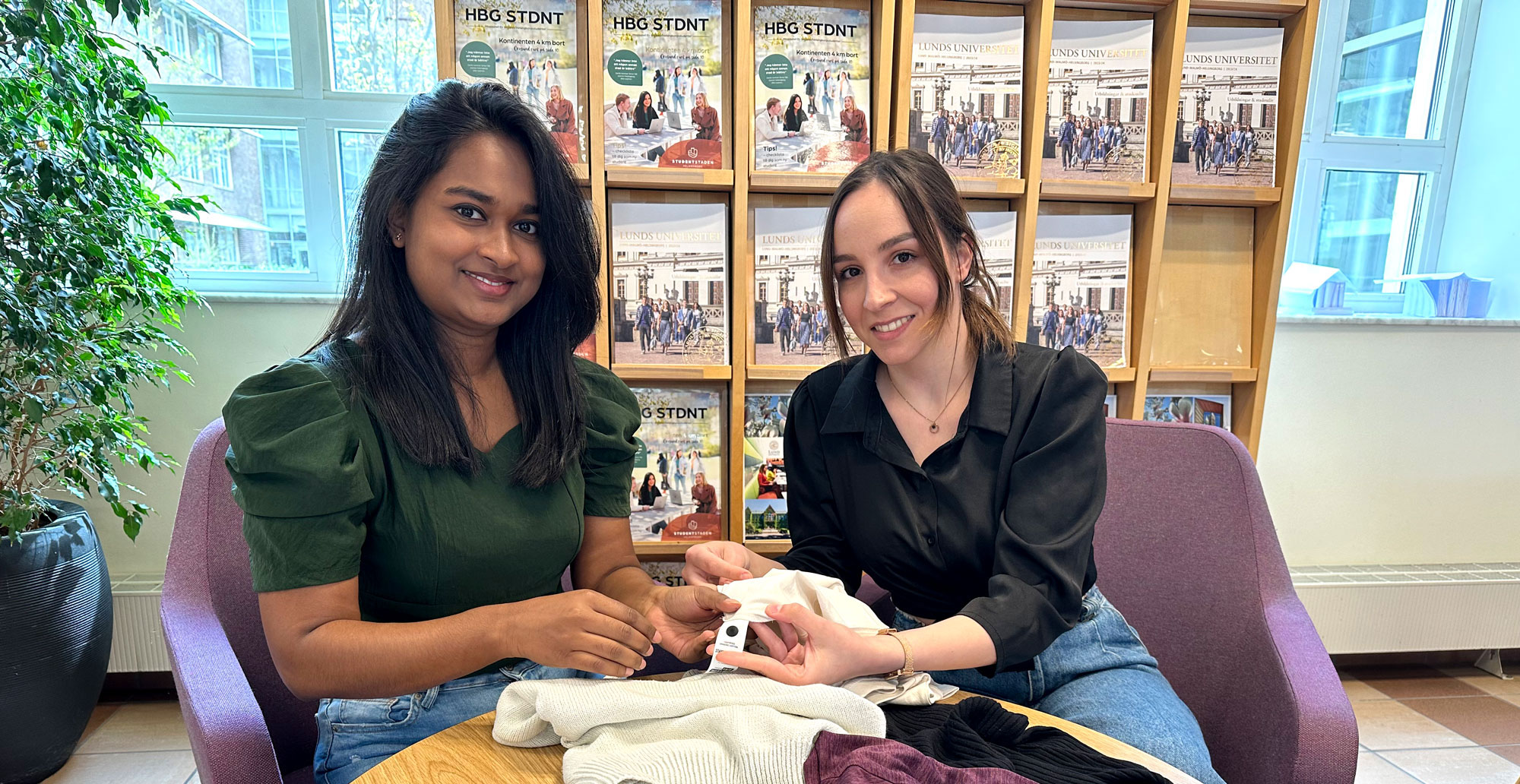
Lund University: Clothes get their own identity
In the future, our clothes will include a tag that we can scan to obtain information. In this way, we can see how the garments are produced, where we can get them repaired and how they can be recycled. Perhaps we can even see who has previously worn the garment or given the opportunity to rent it out. In the spring, an innovation project was started in which students at Campus Helsingborg find out what consumers see as the benefits of having tags in their garments.
Image: The app could also include a recycling and repair concept where companies can, for example, open up opportunities to mend their garments.
In just a few years, a digital product passport (DPP) will be introduced by the EU in the textile and fashion industries, among others. The passport should provide information about each individual garment. Therefore, students in the Master's programs in Retail and Supply chain are now testing in the course Service logistics Campus Helsingborg (Lund University) together with Fashion Innovation Center what information is important from a user perspective. The students will be divided into groups and together they will let 40 people test an NFC tag in the form of a tight and heat-safe button. The tag will be read with the mobile phone and the information will be made available in an app.
“The clothes are given an identity and every single event that the clothes have been in can be part of their identity,” says Dimitra Logotheti, one of the students on the programme.
The information to be given is not yet clear, but it could be, for example, data on production, repair possibilities and how to recycle the garment. In this part of the innovation project, students investigate how consumers experience the scan and what is needed to enable users to make informed decisions in their future clothing purchases.
- This will hopefully make it much easier to buy second-hand clothes and, in addition, to add more value to it, continues student Harini Wijerathne. Some consumers may be a little afraid to buy second-hand, because they do not know who has owned the garments and for how long they have been used. If you have that information and can get the products for that good price, it might be more interesting to buy second hand.
Students also have ideas about entirely new uses.
- We are considering some ideas on making the app more profitable and at the same time providing opportunities for more people. In our working group, we outline whether we can create a kind of community within the app. In this forum, for example, people could take a photo of an outfit they created and then another person could rent or borrow it,” says Dimitra Logotheti.
Students will also examine whether consumers need to be motivated by rewards in the form of discounts or in-app benefits for scanning their clothes. The tags will provide useful information even to the textile and fashion industries, which have problems with overproduction. The digital product passports will make it more clear to the industry how many garments are needed but can also provide a different kind of information.
“The tags are an opportunity for the entire fashion industry and all brands,” continues Dimitra Logotheti. Brands often do not have sufficient insights into how consumers use the products. It can be about how many times consumers use the garments and how many times they wash them. It's a huge opportunity for any brand and a lot of brands are very interested in this idea. There is a big opportunity that deals with the new kind of data. Whoever has the data also has the business opportunity.
For the students, this is a step towards a future work, perhaps in the fashion industry. How do they feel about being able to test a prototype for something completely new during their studies?
“On the one hand, it's empowering but it's also a bit challenging,” concludes Harini Wijerathne. Working on this is not just about writing their assignment and handing it over to their teacher to get a grade. This is something where we can contribute to society in a very good way, and we feel proud of it!
Fashion Innovation Center is the company behind the tags. The company is an accelerator of the transformation of the fashion industry.
“The purpose of the digital product passes is to steer the market towards transparency, measurability and traceability,” says Lars Mattiasson at the Fashion Innovation Center. Can we use this to measure resources and circularity in new ways? Can we create new and more sustainable business models? The questions are many and we are at the beginning of this and do not yet know what happens when you get new type of data from tagged garments.
In the coming months, the Fashion Innovation Center will continue with more tests of the tags.





